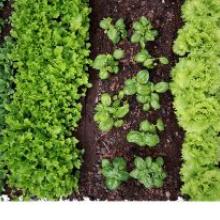Image set

Related services
Opening article section
Article section
Lead
Rich text
Composting is a natural process in which micro-organisms transform organic matter into garden gold. Let me explain…
In nature, organic matter is recycled naturally. It is decomposed by soil organisms to create humus (not to be confused with hummus), which helps plants grow.
You can also replicate this composting process at home. You can convert your organic household and garden waste into a natural humus-like fertilizer: compost.
Composting reduces the many harmful impacts of having to transport and dispose of waste—from air, soil and water pollution to health effects on people, plants and wildlife.
Did you know that up to 30% of household waste can be composted? That includes dead leaves, fruit and vegetable peels and much more. With very little effort on your part, the compost will ripen in a few months to become high-quality soil for your vegetable garden, flower boxes and lawn.
There’s also industrial compost, which comes mainly from waste collected at the institutional and municipal level (think green waste and food waste). This type of composting allows us to recover a renewable material that would otherwise go to landfills. It’s a process that we at Englobe have been proudly supporting for over 40 years!
Rich text
Tips on how to do more to protect the environment
One simple thing you can do before tossing organic materials in the brown bin: Remove all labels from your fruits and veggies. Otherwise, they may end up in your compost. Small steps like this can make a big difference!
Can plastic bags be composted? Only bags marked “compostable” should go into outdoor composting setups. They are designed to break down quickly in the process and provide you with good quality compost. Conventional and biodegradable plastics leave fragments in the final compost.
Be sure to use certified compostable bags. But when in doubt, it’s better to throw them in the regular trash. That way, you’ll help improve the quality of the compost.
Rich text
Why I’m proud of my work at Englobe
Englobe helps make our communities better and more beautiful by transforming our organic waste into compost. Every year, we recycle about 200,000 tons of organic materials into 175,000 tons of high-quality compost and topsoil. Local communities then use the compost and topsoil in their horticultural, agricultural and environmental activities.
We’re the only company in Quebec to be certified under the Canada-wide compost standard, a voluntary standard accredited by the Standards Council of Canada (SCC).
Knowing that the work I do every day has a positive impact in our communities is not only important, it’s also very motivating and gratifying. Together, let’s make our planet a better place. We can do it—even from the comfort of home!